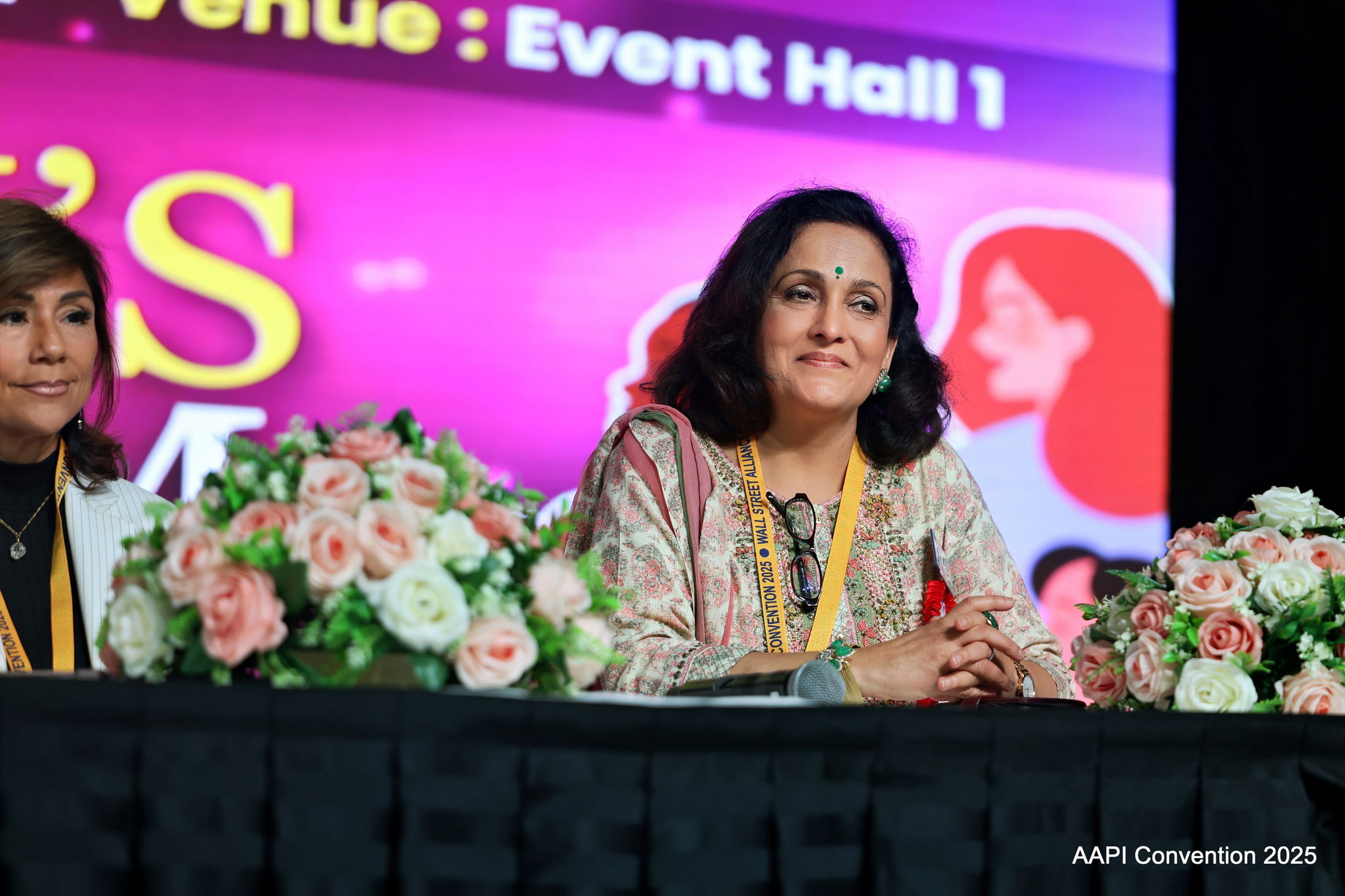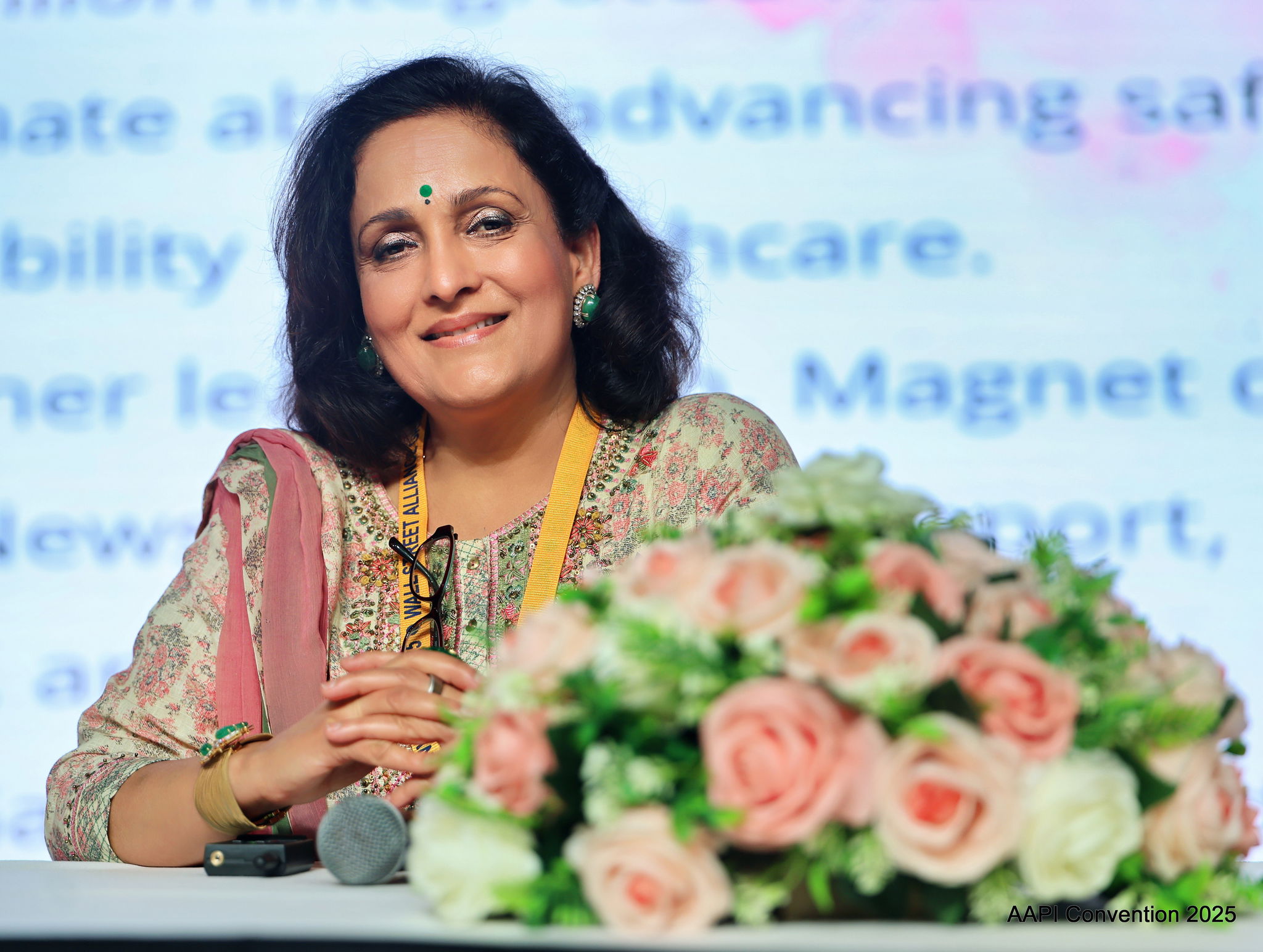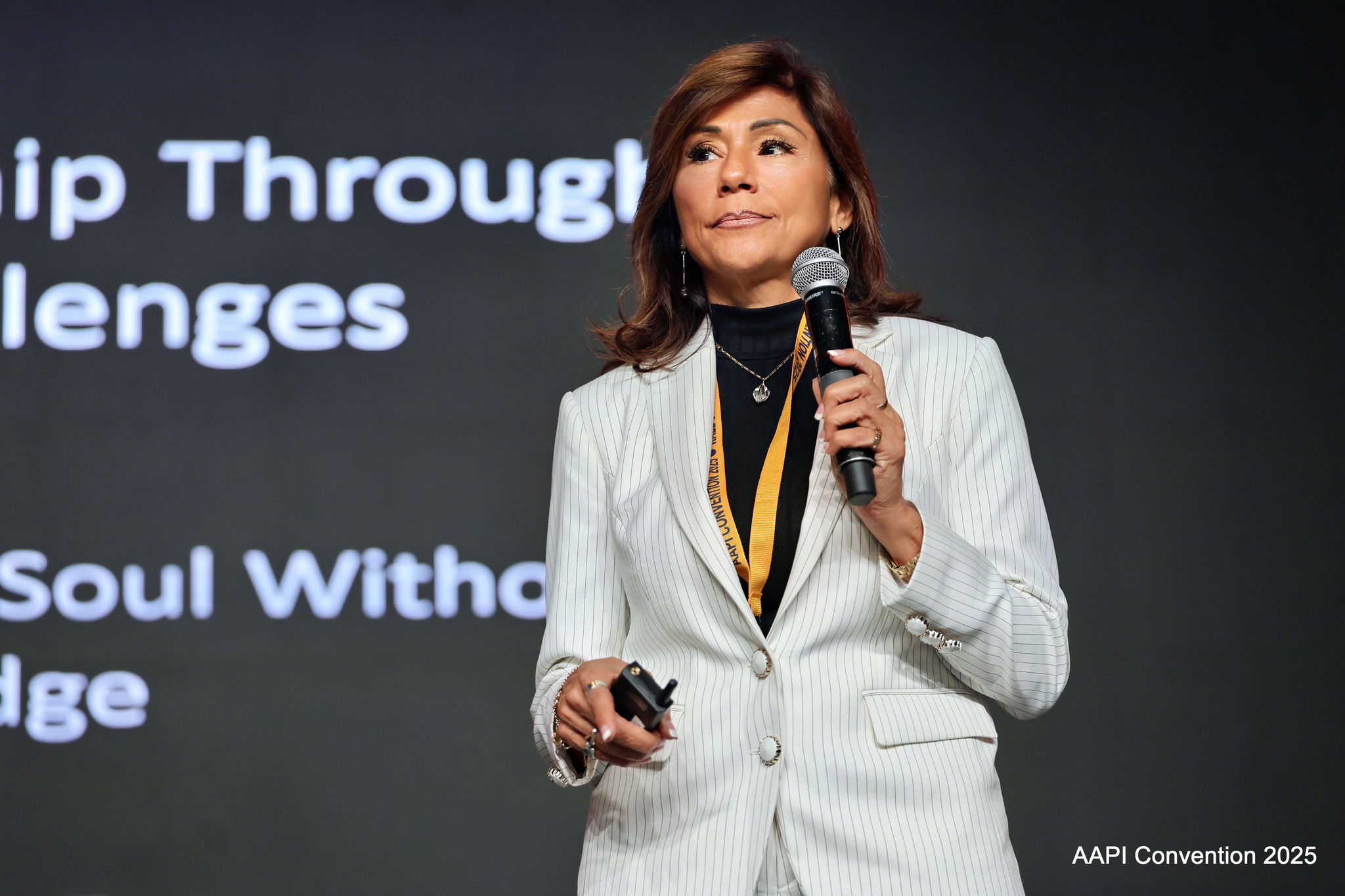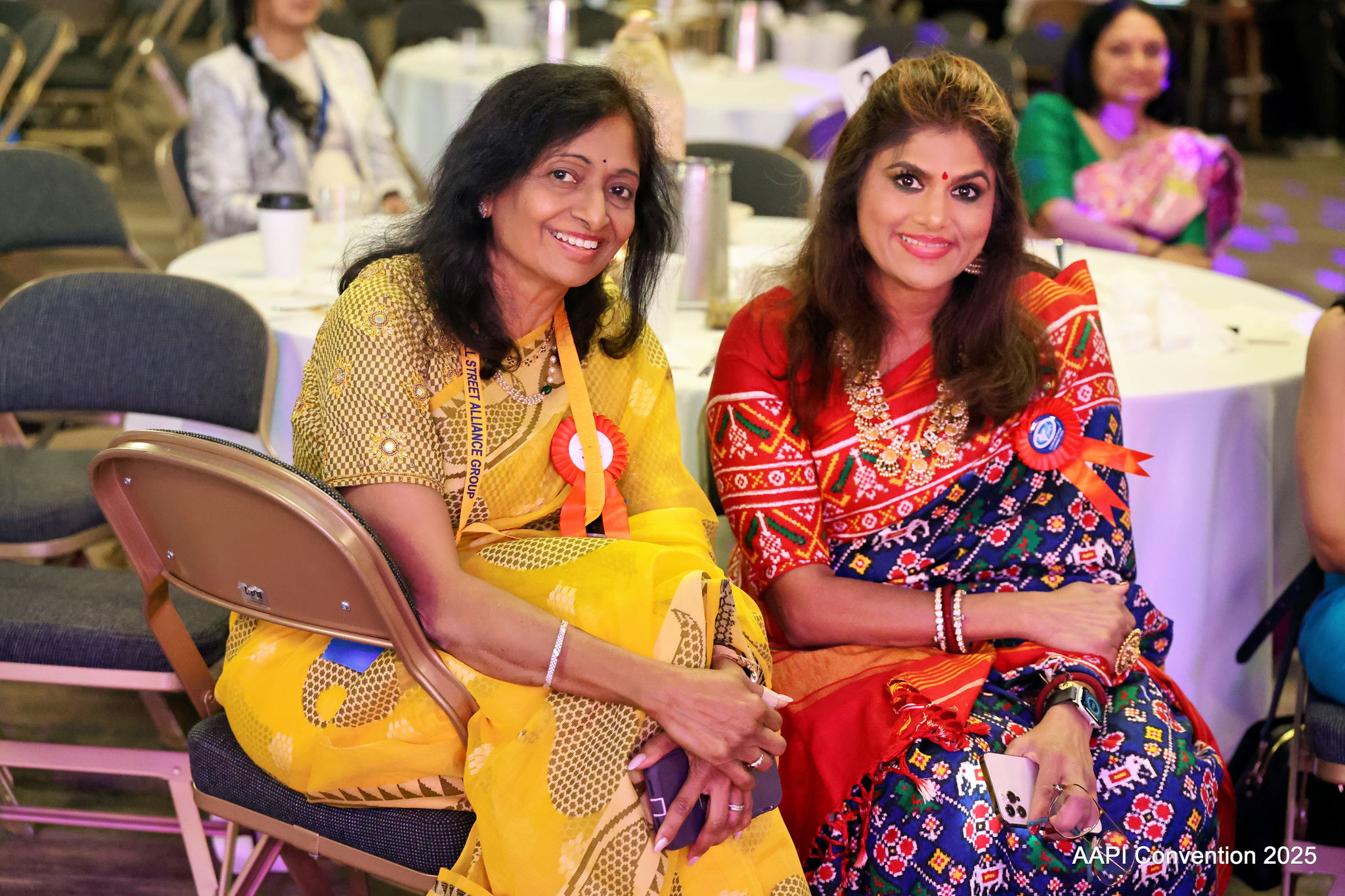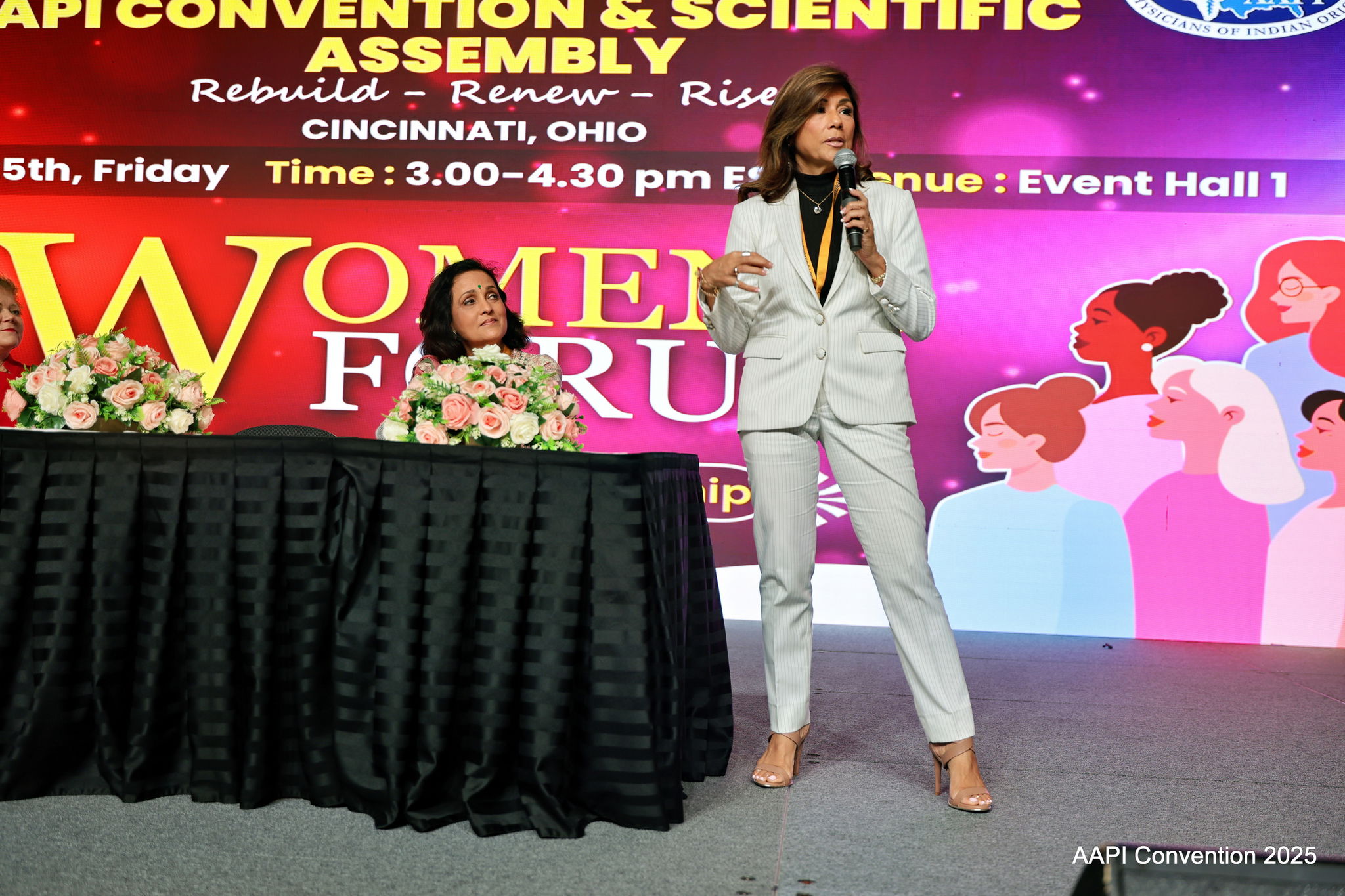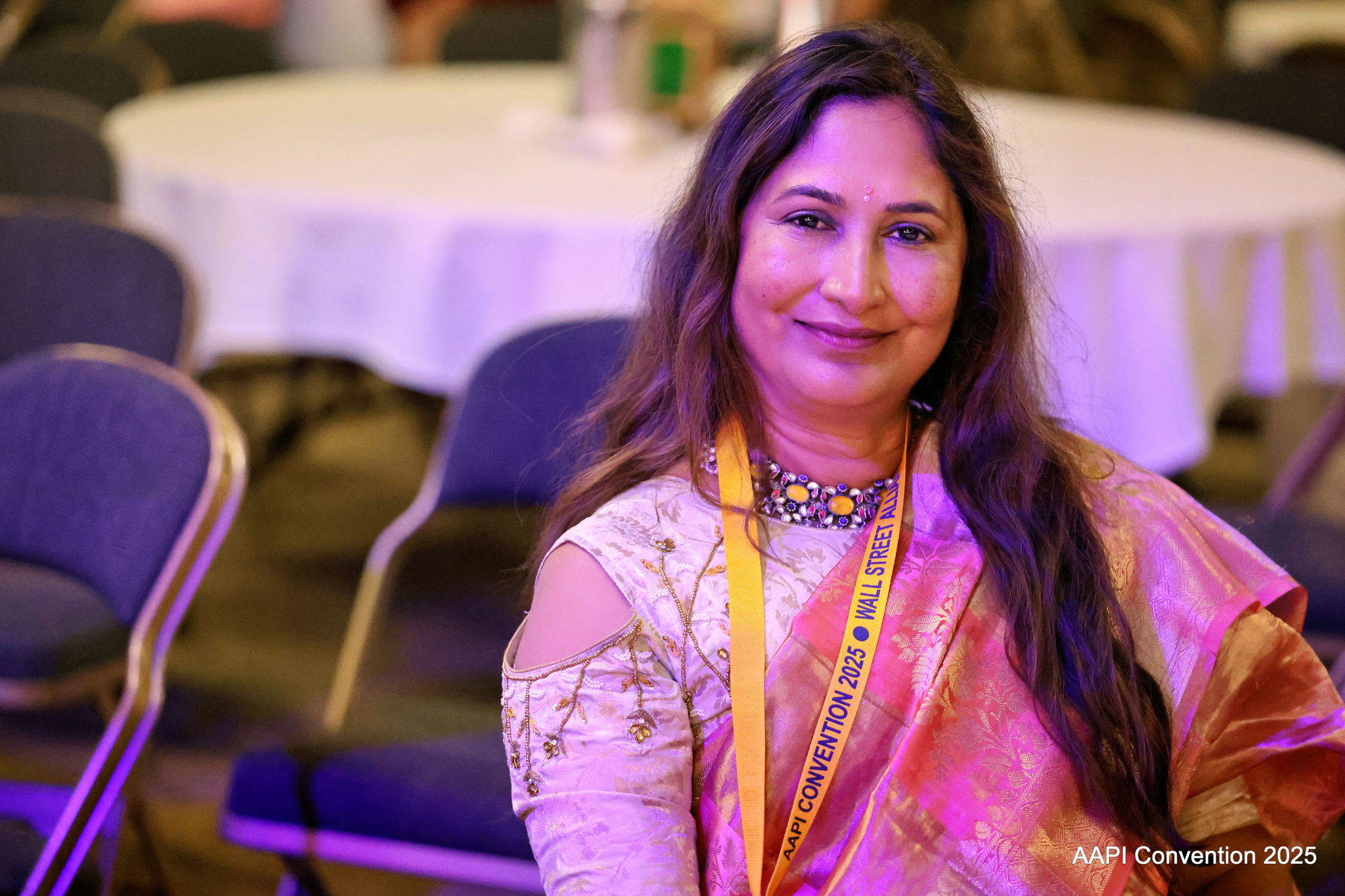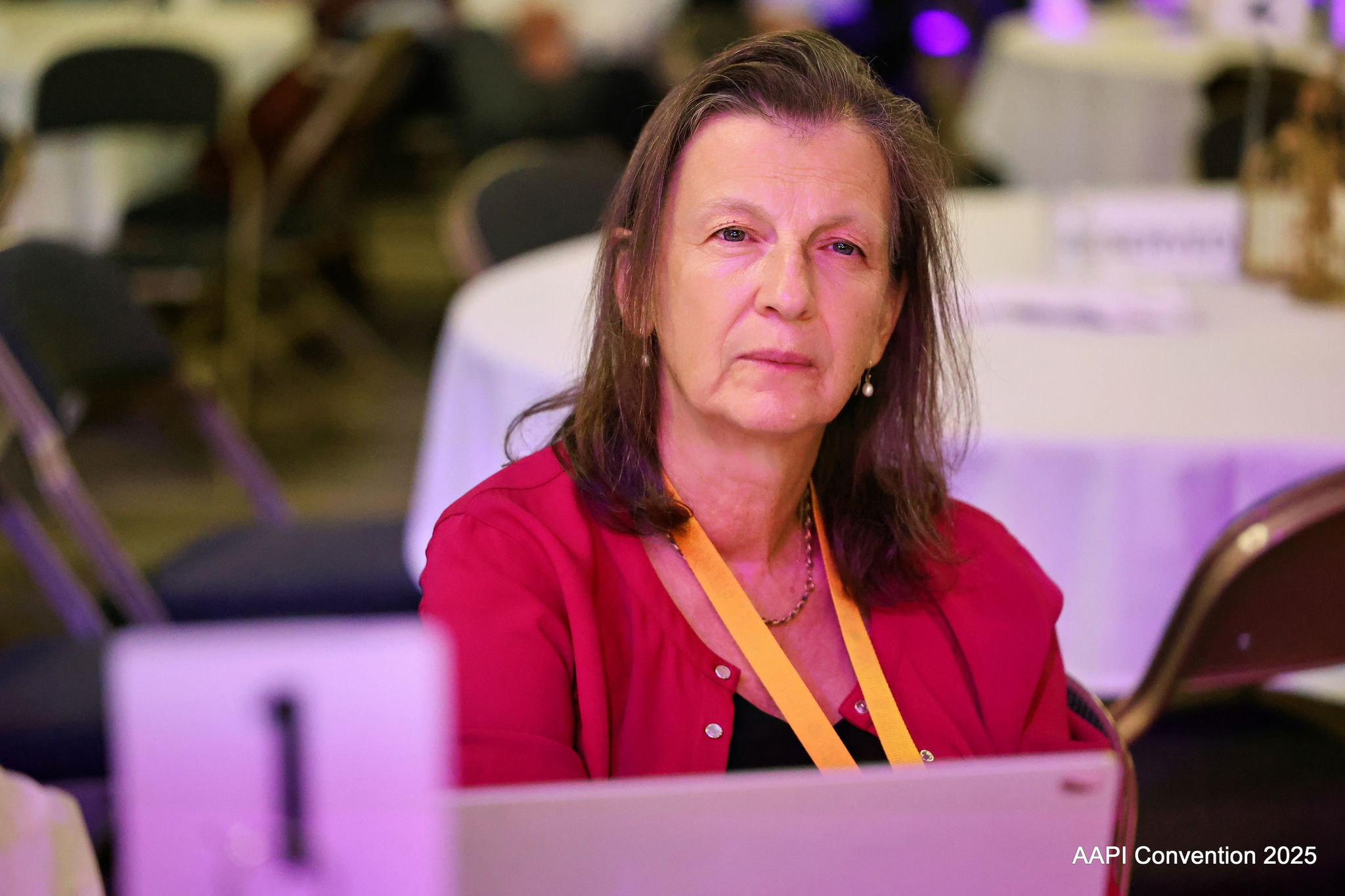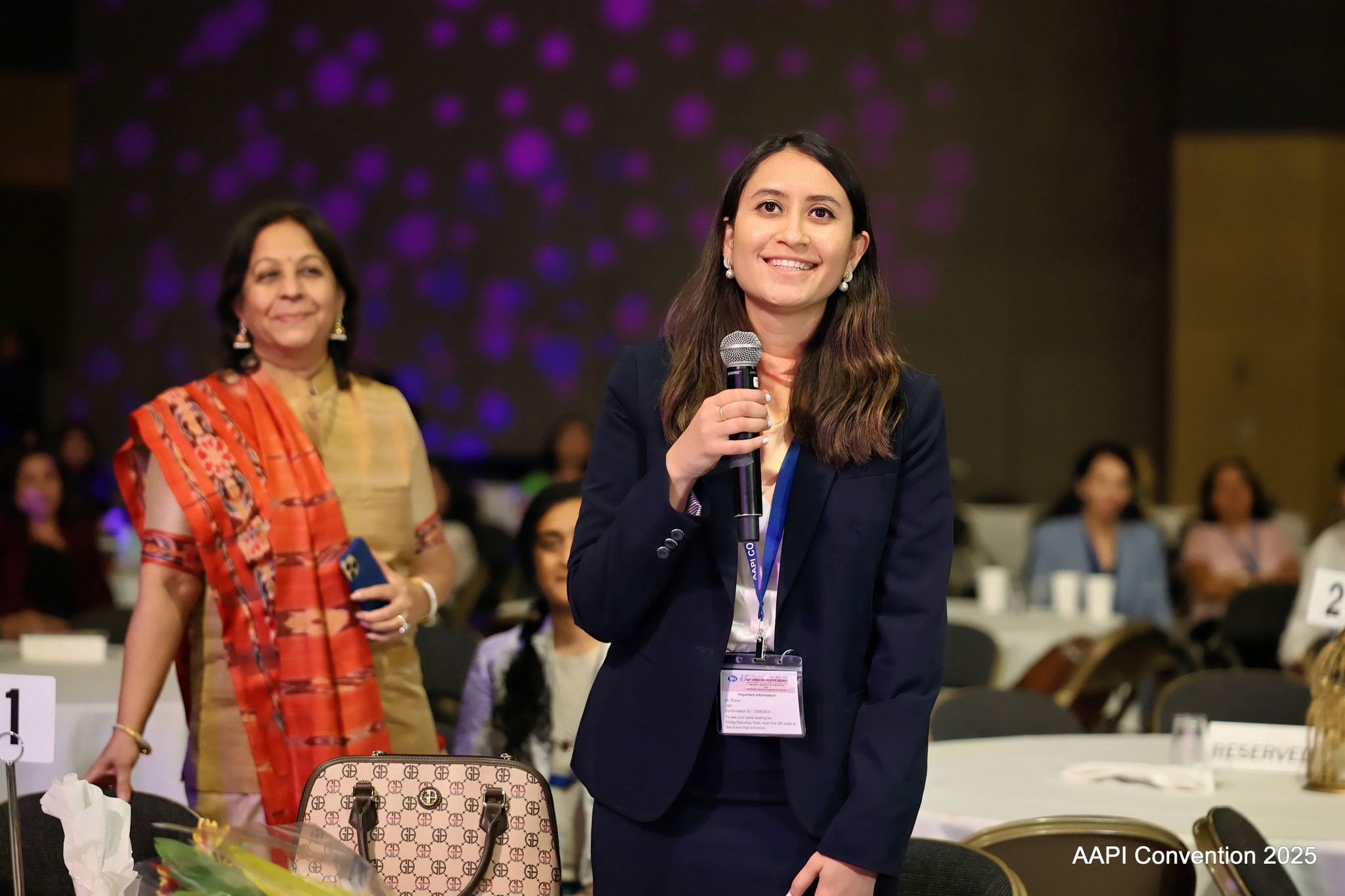America
Dr. Divya Navani’s Unstoppable Leadership: Overcoming Imposter Syndrome at AAPI’s 43rd Convention

Cincinnati, OH:
Cincinnati, OH: In the heart of Cincinnati, where the Ohio River glints under the summer sun, a powerful conversation unfolded at the 43rd Annual Convention of the American Association of Physicians of Indian Origin (AAPI). On July 25, 2025, the Cincinnati Marriott at RiverCenter became a crucible for inspiration, as the Women Physicians Forum hosted a panel discussion titled “Unstoppable Leadership: Breaking Down the Barriers of Imposter Phenomenon.” For the South Asian diaspora, particularly those navigating the high-stress and high-stakes world of medicine, this event was a clarion call to confront a silent adversary: imposter syndrome. Led by Dr. Divya K. Navani, the forum resonated deeply with over 1,000 delegates, offering a platform for women physicians to share their triumphs, vulnerabilities, and strategies for overcoming self-doubt.
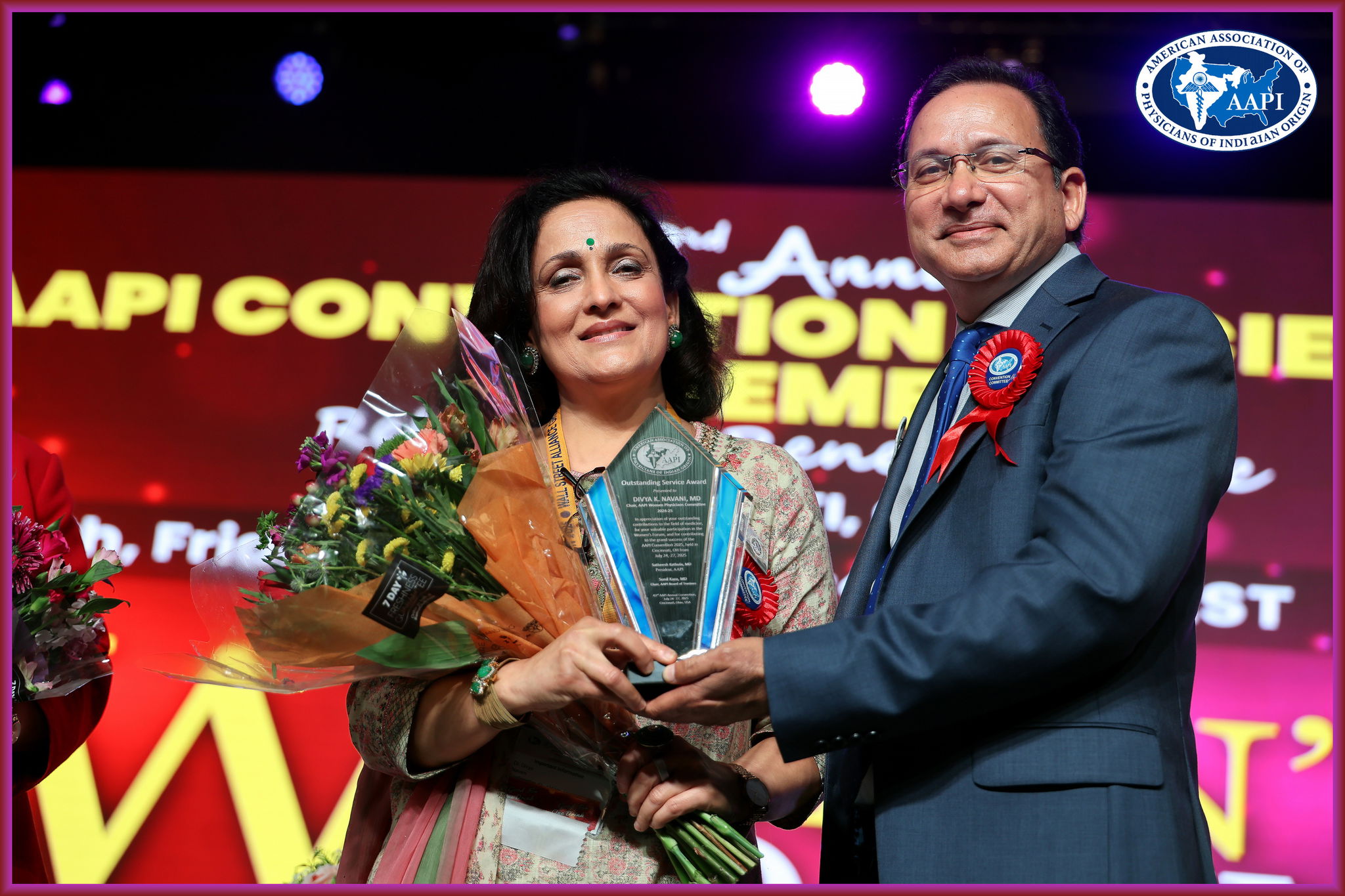
The convention, under the leadership of Dr. Satheesh Kathula, President, AAPI and his team, was a vibrant tapestry of culture, science, and leadership, with the Women’s Forum standing out as a beacon of introspection and empowerment. Dr. Navani, an internal medicine physician and transformational health coach with nearly three decades of experience, opened the discussion with a personal story that struck a chord with both women and men in the audience. She recounted her early career, marked by academic accolades and a rapid ascent through medical examinations, only to find herself blindsided by self-doubt when negotiating her first job. “I knew I knew,” she said, her voice steady yet reflective, recalling how she failed to advocate for the benefits her peers effortlessly claimed. “That day in the car, I was confused, angry at myself, and ashamed even. I promised myself never again.” Her story illuminated the insidious nature of imposter syndrome, a psychological phenomenon where highly qualified individuals doubt their competence despite overwhelming evidence of their success. Quoting studies, Dr. Navani revealed a stark reality: one in two women physicians and one in four male physicians grapple with this internal struggle. This statistic underscores its prevalence in the high-pressure world of medicine.
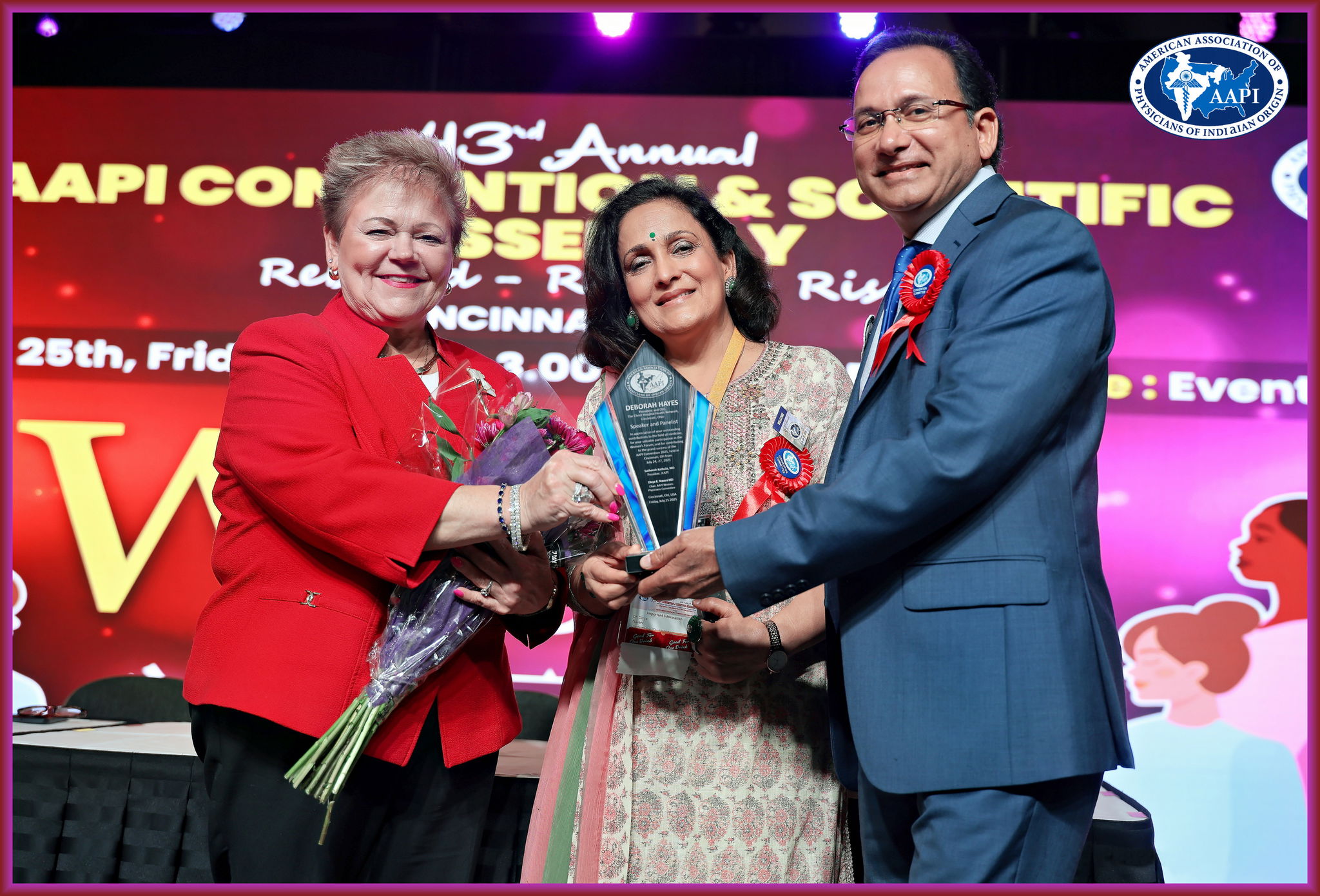
The panelists—Dr. Apoorva Ramaswamy (appearing virtually), Deborah Hayes, CEO of The Christ Hospital Health Network, and Jessie Torres, a peak performance coach, brought diverse perspectives to the table, each weaving their personal journeys into a collective narrative of overcoming self-doubt. Dr. Geeta Nath, a seasoned internist and local AAPI chapter president, moderated with grace, ensuring the discussion flowed seamlessly from personal anecdotes to broader implications. The forum was not merely a dialogue but a lifeline for physicians, particularly those from the South Asian community, who often face unique cultural pressures to excel while battling internalized doubts about their worthiness.
Dr. Navani’s address set the tone, emphasizing the need to confront imposter syndrome head-on. “Imposter syndrome starts early in a physician’s career, and it is imperative to address it early,” she asserted, highlighting its role in physician burnout. Her approach was pragmatic yet deeply personal, urging attendees to arm themselves with “a list of facts” to counter negative self-talk. “It is a fact that I became a physician by the age of 23. It is a fact that I have cleared every single exam I have ever taken,” she declared, encouraging others to catalog their achievements as a shield against self-doubt. For the South Asian diaspora, her words carried particular weight, resonating with the immigrant experience of striving for perfection in a new land, where success is often seen as a mandate and a proof of worth rather than a fulfilling byproduct of a well-lived life.
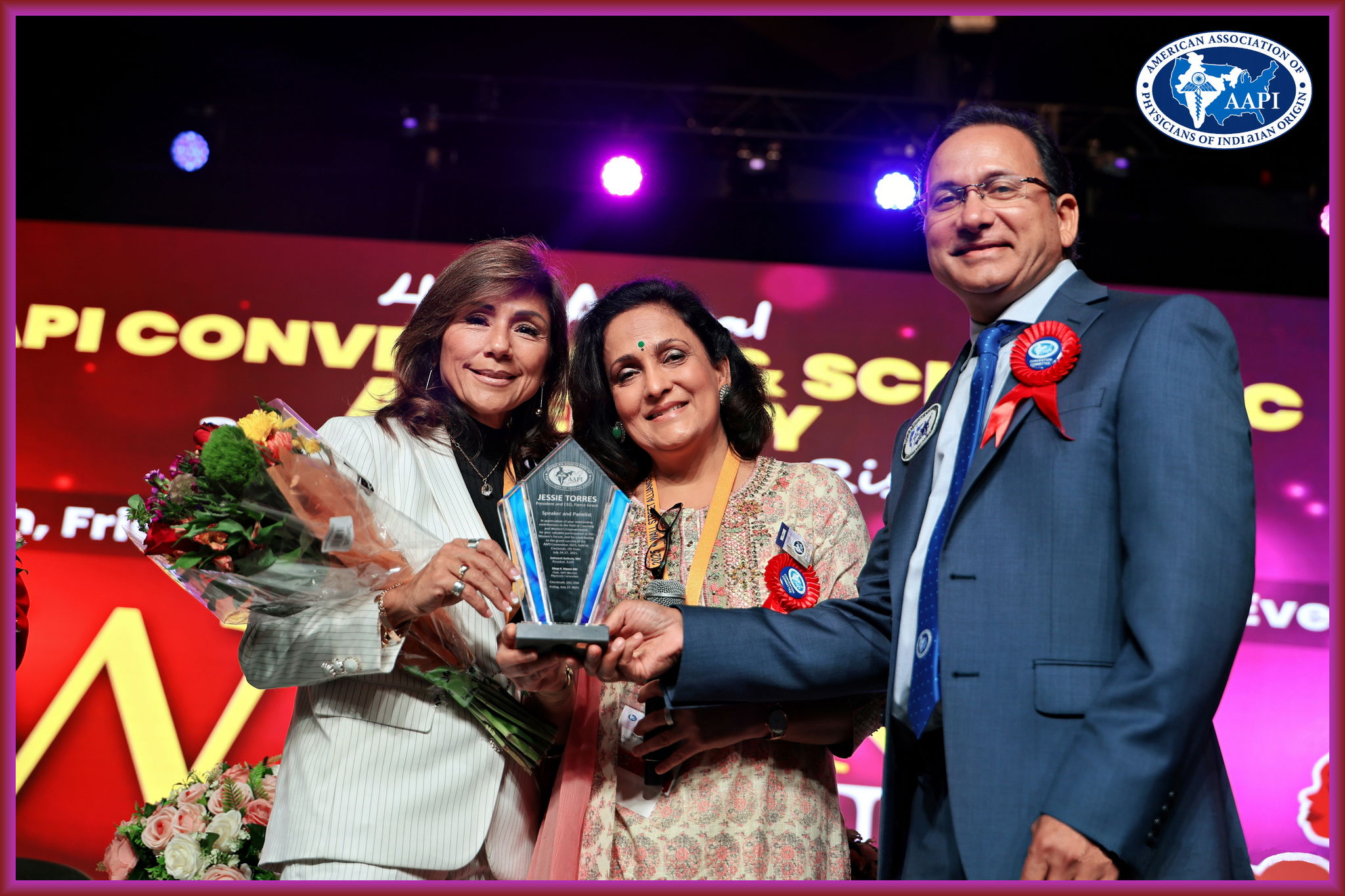
Deborah Hayes, whose journey from a nurse’s aide to the CEO of a $3 billion healthcare system is nothing short of remarkable, shared how imposter syndrome shadowed her ascent. “When I read the definition of imposter syndrome, I thought -- That’s me,” she admitted candidly, recounting moments of doubt at every career milestone. From her early days as a critical care nurse to her current role overseeing nearly 7,800 employees, Hayes faced skepticism—both external and internal. “Someone said to me, ‘You’re just a nurse. You’re not going to be able to do this.’ But I did,” she said, her voice a testament to resilience. Her strategy? Letting the facts speak for themselves. With multiple degrees in biology, nursing, informatics, and business administration, Hayes turned her pursuit of knowledge into a bulwark against self-doubt. This lesson resonates with South Asian professionals who often accumulate credentials as a defense against societal expectations.
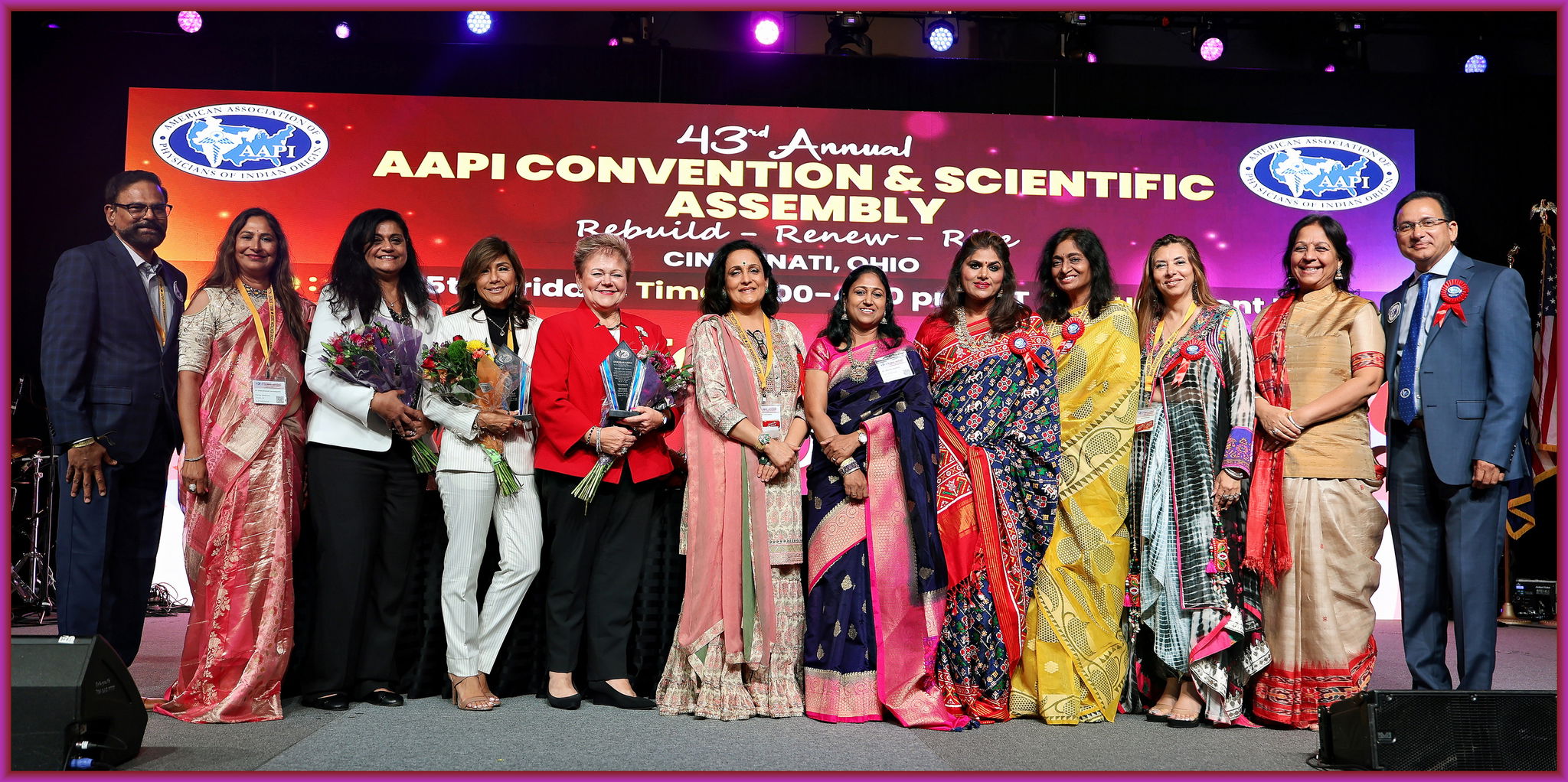
Jessie Torres brought a raw, emotional perspective, sharing her transformation from a young woman trapped in a traumatic marriage to an internationally acclaimed coach. “I constantly felt like a failure,” she confessed, describing her efforts to maintain a facade of a perfect family while battling internal turmoil. Her story of overcoming abuse and loss—losing both brothers to murder 30 years apart—struck a deep chord, particularly for those in the audience who have faced personal adversities while pursuing professional excellence. Torres introduced the concept of “Fierce Grace,” a philosophy of turning trauma into purpose. “We need you whole,” she urged the physicians, emphasizing that authentic leadership stems from embracing one’s essence, not just achievements. Her message was a powerful reminder for the South Asin community, where cultural stigmas around mental health and vulnerability often discourage open discussions about personal struggles.
a
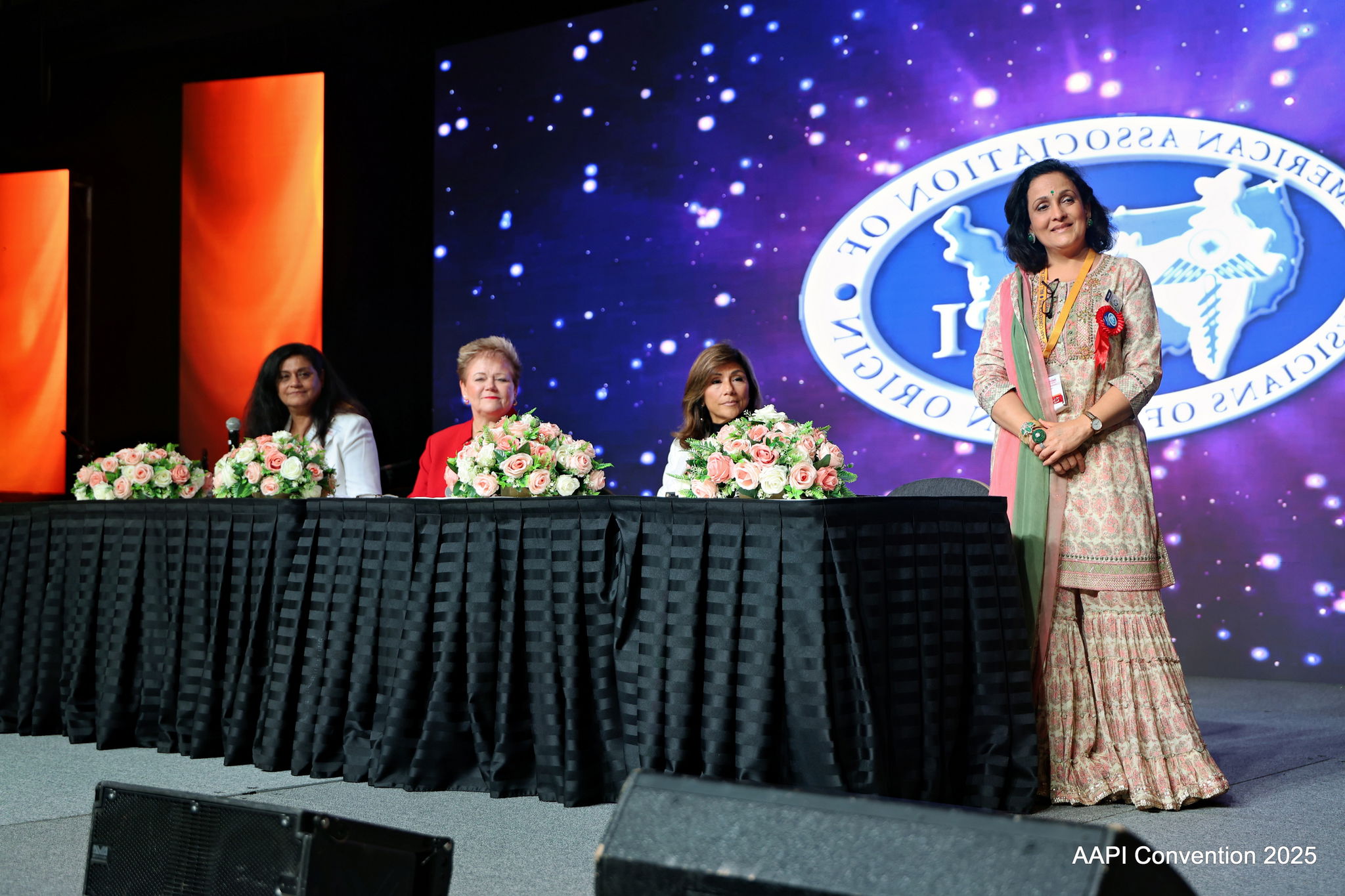
Dr. Apoorva Ramaswamy, a laryngologist specializing in voice and swallowing disorders, offered a unique perspective shaped by her immigrant roots and her father’s mantra: “Just Nike it!” Unable to attend in person due to pregnancy, she shared via video how her father’s journey as a foreign medical graduate inspired her to focus on duty over self-doubt. “It’s never been about whether I felt like I belonged,” she said. “It was about whether there was something I could contribute.” Her story of carving out a niche in a competitive department of Otolaryngology- Head and Neck Surgery at The Ohio State University underscored the importance of clarity and conviction. These qualities resonate with South Asian professionals navigating predominantly non-South Asian environments.
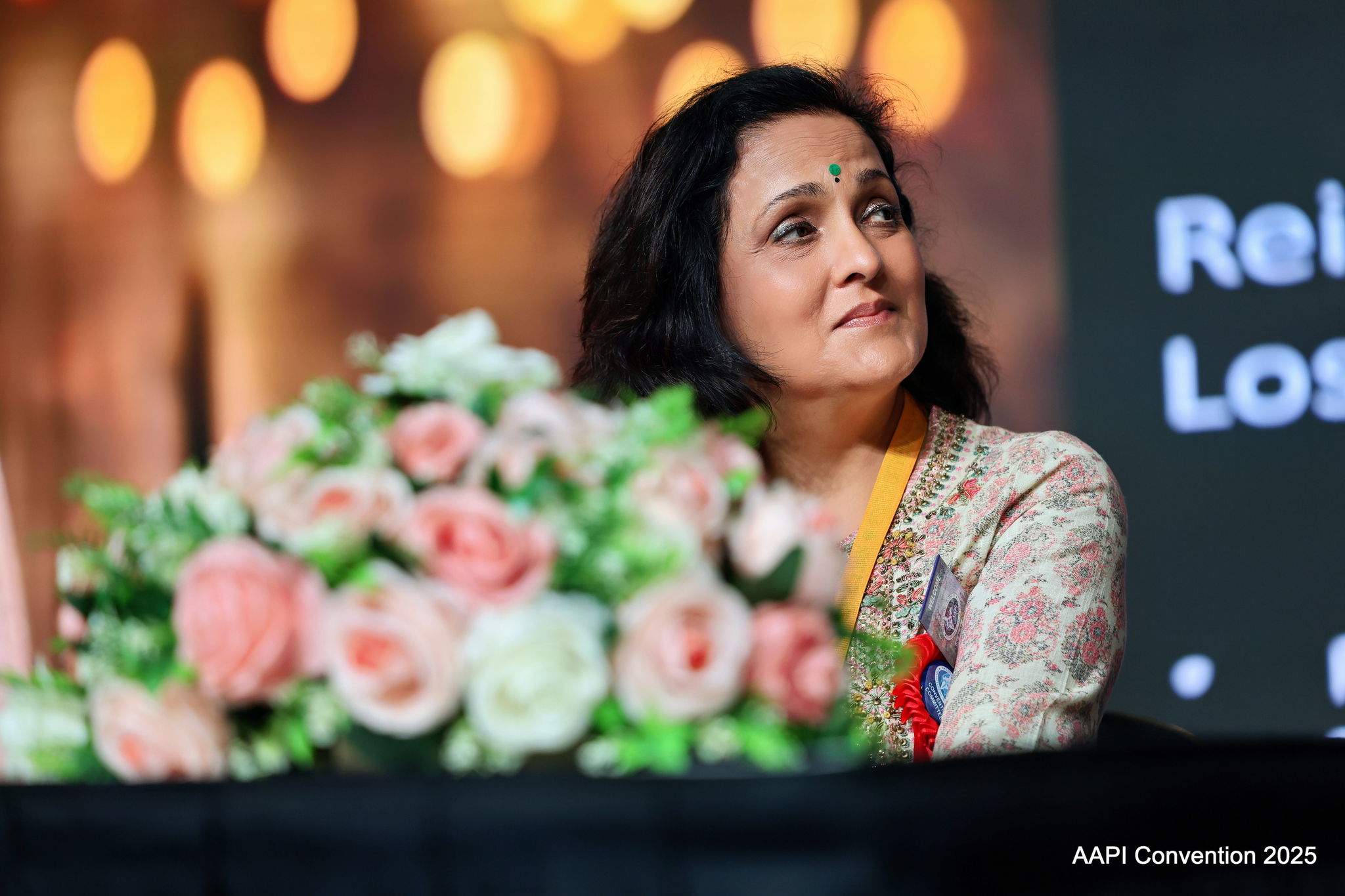
The forum’s impact extended beyond the panelists’ stories, sparking a dialogue that reverberated through the audience. Dr. Ravi Kolli, a past AAPI president, shared how imposter syndrome affected his career, proving its relevance across genders. “I always felt I didn’t belong wherever I was,” he admitted, yet his success as a leader underscored the power of perseverance. Dr. Lyuba Konopasek, Vice President of Intealth/ECFMG, highlighted efforts to address imposter syndrome among medical residents, emphasizing early intervention. Dr. Hetal Gor, incoming Chair of AAPI’s Board of Trustees, called for a “circle of sisterhood” to support women physicians, a sentiment echoed by many in the audience who thanked Dr. Navani for naming a struggle they had long felt but couldn’t articulate.
For the South Asian diaspora, this discussion holds profound significance. Our community often grapples with the dual pressures of cultural expectations and professional demands, where failure is not an option, and perfection is a baseline. Imposter syndrome, as Dr. Navani noted, thrives in such environments, exacerbated by the immigrant experience and the medical profession’s unforgiving standards. The forum’s emphasis on vulnerability as a strength challenges the stoicism often ingrained in South Asian culture, encouraging physicians to seek mentorship and community support. As Suresh Bodiwala, I see this as a pivotal moment for Asian Media USA’s audience a call to recognize and address the psychological barriers that hinder our community’s potential.
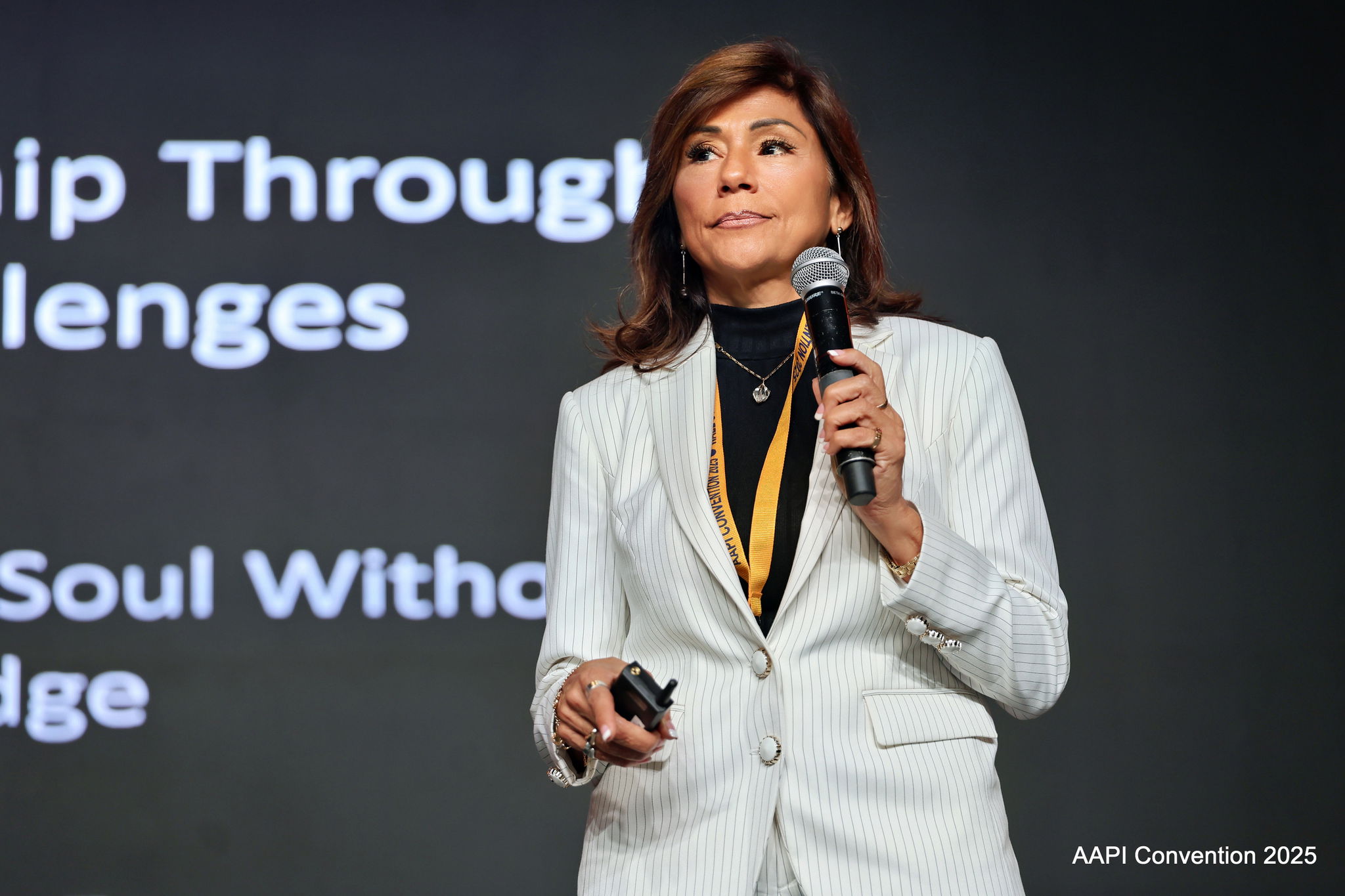
The personal anecdotes shared during the forum humanized the struggle, making it relatable to both early-career physicians and seasoned leaders. One audience member, identifying herself as an ER physician, expressed gratitude for the session, noting that it gave a name to her daily struggles. Another, Dr. Razia
Shaik shared her experience of thriving in solitude, questioning whether her preference for independence made her vulnerable to imposter syndrome. Dr. Navani’s response—that introversion is a strength, not a liability—offered reassurance while underscoring the importance of self-awareness. She encouraged Dr. Shaik to know where the balance between spending quality time in solitude and interacting withothers was for her. These interactions highlighted the forum’s role as a safe space for physicians to confront their doubts and find solidarity.
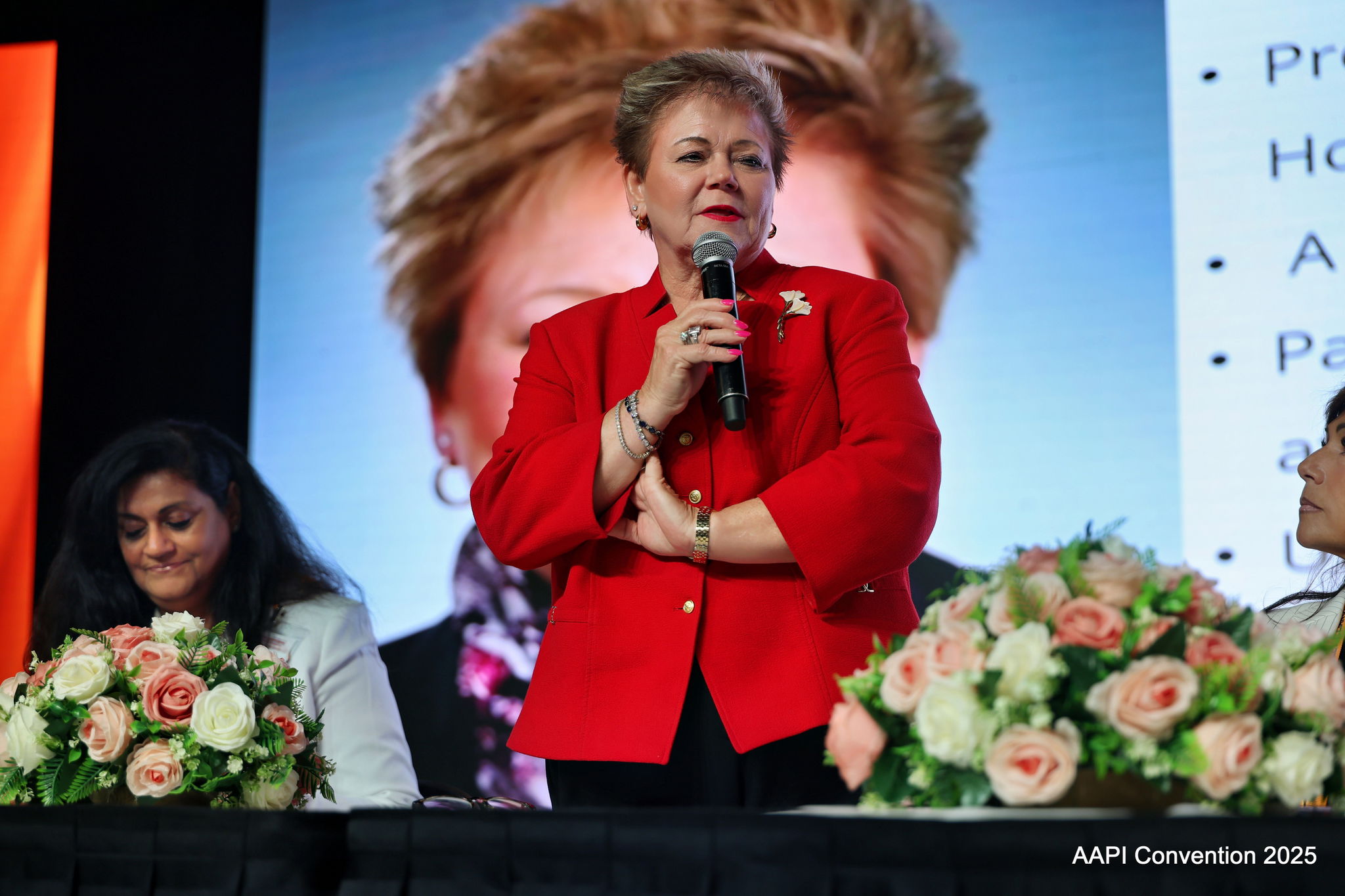
This discussion has broad implications and affects all physicians and healthcare leaders, regardless of ethnicity or geographic area. Studies cited by Dr. Navani show that women physicians, despite spending more time with patients and achieving better outcomes, are particularly susceptible to imposter syndrome. Addressing this issue is not just a personal endeavor but a professional imperative, as self-doubt can erode confidence and contribute to burnout, ultimately affecting patient outcomes. For the South Asian community, which forms a significant portion of America’s physician workforce, overcoming imposter syndrome is a step toward sustaining our contributions to healthcare.
As the convention transitioned to its gala events, the Women’s Forum left an indelible mark. Dr. Navani’s closing words encapsulated it's essence: “Leadership is hard. Imposter syndrome is real. When you step up, remember that the generations of women before you are celebrating you, and the generations to come are thanking you.” Her call to action—to share experiences openly and mentor the next generation—resonates deeply with Asian Media USA’s mission to amplify the voices of our community.
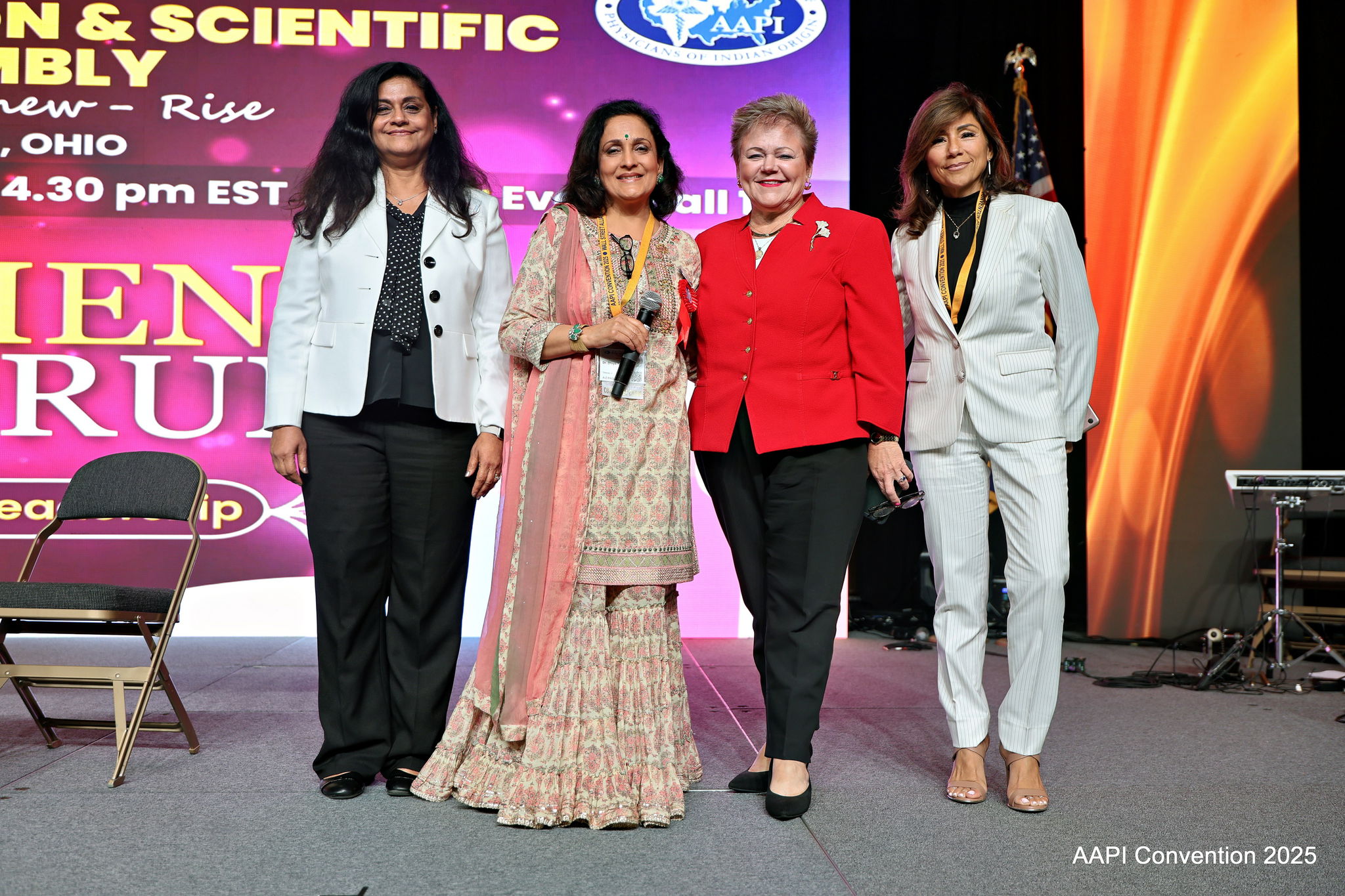
We reached out to Dr. Navani for her comments after the forum. She said she felt that the forum created a much-needed space of vulnerability, honesty and collaboration within the physician community. She thanked Dr. Satheesh Kathula, AAPI President for his steadfast support and encouragement to her and the Women Physicians Forum. Dr. Kathula and the convention team of Dr. Dilip Bearelly and Dr. Sashi Kuppala supported Dr. Navani wholeheartedly in the planning and execution of the Women Physicians Forum, helping her bring her vision to life. Dr. Divya Navani, Dr. Satheesh Kathula and Dr. Dilip Bearelly puts their heads together to come up with the perfect team of panelists for the Women Physicians Forum. Dr. Kavita Jyotula and Dr. Anjali Gulati did a great job at moderating the questions from the audience.
We wish Dr. Amit Chakrabarty, President and Dr. Hetal Gor, Chair BOT and their entire team all the best for a very successful year.
Suresh Bodiwala, Chairman and Founder of Asian Media USA, I see this discussion as a vital narrative for our community, a story of resilience, empowerment, and the unyielding pursuit of excellence that defines our diaspora’s contributions to American healthcare. I urge our readers to take this message to heart. Our Indian Community has long been a pillar of American medicine, and we must confront the internal barriers that threaten our potential. Let us build a community where vulnerability is strength, where mentorship bridges generations, and where every physician, regardless of gender, knows their worth. Reach out, connect, and support one another. Together, we can transform imposter syndrome from a silent struggle into a shared triumph, ensuring that our community’s legacy of excellence endures.
